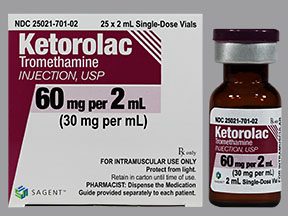Source: Thailand Medical News Jun 19, 2019 6 years, 4 months, 3 weeks, 3 days, 20 hours, 52 minutes ago
Researchers from Emory University have discovered that the anti-inflammatory drug called ketorolac, given prior to surgery, can promote long-term survival in animal models of cancer metastasis. The so-called "pro-resolution" therapies can also trigger the immune system to eliminate metastatic cells. The research also suggests that flanking chemotherapy with anti-inflammatory drugs can unleash anti-tumor immunity.

"The research findings suggest a potential paradigm shift in our approach to resectable cancers," says Vikas P. Sukhatme, MD , senior author of the research paper. "Clinical trials are now urgently needed to validate these animal model studies."
Most cancer-related deaths come from metastases, the spread of cancer cells from a primary tumor to surrounding tissues or organs. The cells that seed metastases are often in microscopic clusters and are non-visaible to a surgeon. Chemotherapy, typically given after or prior to surgery is aimed at eradicating these cancer cells in the hopes of preventing cancer
recurrence. But, chemotherapy can sometimes stir up inflammation, promoting metastasis instead. Also,surgery and chemotherapy can induce an inflammatory or immunosuppressive injury response that promotes dormant metastatic cells to start proliferating, leading to tumor recurrence.
Ketorolac is a cheap NSAID (nonsteroidal anti-inflammatory drug). Because of concerned side effects, it is only approved by the FDA for short-term pain management "at the opioid level." It differs from other NSAIDs in that it preferentially inhibits the enzyme COX-1, more than COX-2. Other studies of prevention of cancer recurrence have focused on COX-2 inhibitors.
The researchers showed that preoperative, but not postoperative, ketorolac administration (as it typically is currently used), can eradicate cancer metastasis in animal models and also extend survival . The effects appear to depend on COX-1 inhibition, because other NSAIDS did not display the same survival benefits. A further increase in the percentage of animal models that survived following resection of the primary tumor was noted when ketorolac was combined with low dose aspirin and omega 3 fatty acids. Resolvins, metabolic products of omega 3 fatty acids accelerate the resolution of inflammation.
The researchers gained insight into how these approaches could be combined with other anti-cancer therapies. Ketorolac and the resolvins appear to indirectly stimulate T cells, part of the immune system, augmenting the action of immunotherapies such as checkpoint inhibitors, but conflicting with chemotherapy.
The researchers concluded that it is possible to eradicate micrometastatic disease and dormant tumor cells without chemotherapy. They demonstrated that unleashing T cell immunity by preoperative suppression of systemic inflammation or stimulation of inflammation resolution exhibits potent antitumor activity, even curing animal models of micrometastases ,which are largely responsible for cancer recurrence following surgery.
Reference: Dipak Panigrahy et al. Preoperative stimulation of resolution and inflammation blockade eradicates micrometastases, Journal of Clinical Investigation (2019).
uot;https://dx.doi.org/10.1172/JCI127282" target="_blank">DOI: 10.1172/JCI127282
Journal of Clinical Investigation
